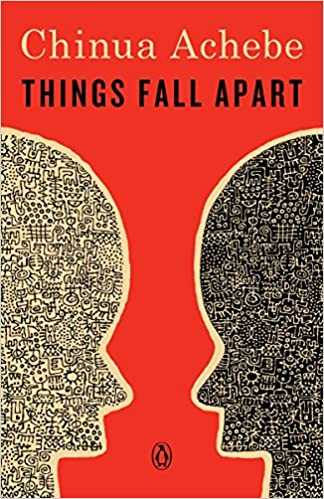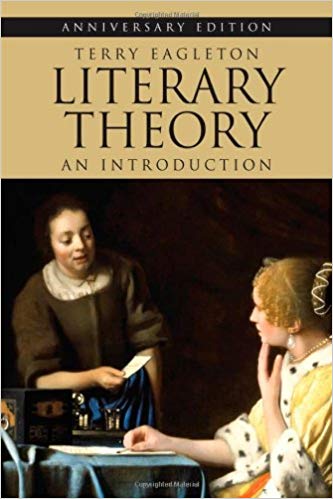Postcolonial Literature and Theory
T, TR, Fall 2007
Introduction:
This course introduces you to some of the leading concepts in postcolonial scholarship along with some of the major postcolonial authors. The postcolonial cultural production can be roughly divided into three overlapping phases: the works produced during the contact phase, the native responses to colonialism, and the postcolonial cultural production both from the global periphery and the diasporic authors. Postcolonialism is a dynamic, expansive, and contested field of literary study involving a high degree of multidisciplinarity and theoretical innovation. This course will also introduce you to the early and current debates of the field and possibilities of the field in the future. We will pay special attention to the current state of high capital and neoliberal globalization and the artistic and critical responses being offered in resistance.
We will read these texts of the global periphery not simply as crystallized versions of the cultures that they attempt to represent, but also use them as points of departure into a study of the larger power structures within which these texts are produced. In doing so we will also question our own place and privileged location within the academy and imagine the possibilities of making our work commensurate with the acts of semiotic and material resistance being offered to the reigning power structures by the cultures of the global south in the spirit of what Gramsci describes as the organic intellectuals.
Using printed texts and film, this course will introduce you to the current global negotiation of power, the articulation of native resistance to the imperatives of globalization, and the native attempts at achieving social justice. In doing so we will also touch upon the role of the nation-state within the current climate of neoliberal globalization and the global war on terror, the politics of the diasporic cultural production, and the possibilities of global, rhizomatic popular alliances.
Required Texts:
Primary Texts:
Ngugi, Wa Thiong’o. Devil on the Cross. Oxford: Heinemann, 1982.
Cliff, Michelle. Abeng. New York: Penguin, 1995.
Cooke, Miriam. Hayati: My Life. New York: Syracuse UP, 2000.
Djebar, Assia. So Vast The Prison.New York: Seven Stories, 2001.
Hyder, Quratulain. River of Fire. 1951. New York: New Directions, 1998.
Theory/Criticism:
Loomba, Ania. Colonialism/Postcolonialism. New York: Routledge, 1998.
Said, Edward. Orientalism.
Goodman, Robin and Saltman. Strangelove. New York: Rowman and Littlefield, 2002.
Occasional handouts. [HO]
Course Policies and Requirements:
Students are expected to come prepared for class: This involves reading the assigned texts, listening carefully to their peers, and contributing their views in a collegiate and stimulating way. Attendance is mandatory.
Distribution of Points:
Presentation 200 Points
Mid-Term Paper 300 Points
Participation 100 Points
Term Paper 400 Points
Total 1000 Points
YOU MUST FINISH ALL MAJOR ASSIGNMENTS TO PASS THE COURSE
Presentation:
During the first week you will choose a particular novel for your presentation. Your presentation will then fall in the week in which your chosen novel is scheduled for class discussion. I expect a 30-40 minutes presentation using the insights provided by the secondary readings. Following are some, but not all, questions you may consider:
What does the text say about gender, race, ethnicity, class, nation, or power and what are your views about it?
Did you agree or disagree with the text’s politics? why?
What is the text critiquing?
How can we relate this text to contemporary realities?
Does this text raise the question of justice? If so, how and for whom?
Does the text provide a politics for a better future?
How does the form compare to the metropolitan techniques of creative production? (For creative writing majors)
Mid-Term Paper:
The Mid-term paper will be due by the end of the eighth week. It should be 8-10 pages (typed, double-spaced, font 12, Times Roman) and should examine at least one of the novels assigned for the class. You may develop your presentation topic into this project. You are not expected to engage in any detailed research; the secondary sources discussed in the class are sufficient. Papers must be handed in on the due date: No electronic submissions.
Class Participation:
As this is a seminar based on a discussion format, your thoughtful participation is essential to the success of the class. I encourage collegiate, open, and thought-provoking class discussions. Remember, we are all here to learn, so let us share our ideas and knowledge to make this class into a dynamic learning experience.
Term Paper:
The final term paper will be due on the last day of class. The paper should be 10-15 pages, with a clearly defined thesis and a coherent argument. I would encourage you to choose your topic early and do extensive research. I will be available to assist during all stages of your research and composition process. You are expected to write a publishable paper in the house style of any of the following journals:
Mosaic
Interventions
South Asian Review
Small Axe
Journal of Commonwealth Literature
Caribbean Studies
You may also choose a journal that you like; please discuss it with me in advance. We will spend the last week of class responding to the papers in a class workshop. I will be available to work with you if you choose to submit your paper to the journal of your choice after the semester. No late papers please.
Attendance:
You are expected to attend the class regularly. You will be in the danger of failing the course if your absences exceed the number of officially allowed absences.
Plagiarism:
Plagiarism is against the law, and will result in automatic failure in the course. Simply stated, plagiarism is when you try to pass anyone else’s work as your own or if you turn in your own work written for another class.
ADA:
If you have a disability, please contact the campus ADA office and bring me the necessary documentation. I will try my best to accommodate you if you need any special instruction or assistance.
Grading Scale:
A 950-1000
A- 900-949
B+ 860-899
B 830-859
B- 800-829
C+ 760-799
C 739-759
C- 700-729
D+ 660-699
D 630-659
D- 600-629
F Less than 600 Points
Weekly Class Schedule
Note: This is a tentative weekly schedule. The instructor may change it as and when it
becomes necessary. All such changes will be announced in the class.
Week One
Introduction to the course and Postcolonialism
Choose your presentation topic
Readings:
“On National Culture.” Fanon. (HO)
“Introduction” and “Situating Postcolonial Studies.” (Loomba 1-94)
“The Angel of Progress. . .” (McClintock, HO).
“The Postcolonial Aura. . .” (Dirlik, HO)
Week Two
Class Discussion: Fanon, Loomba, and McClintock
Readings:
Loomba, (pp. 104-255)
“Notes on the Postcolonial.” Shohat (HO)
Film Screening (Time to be announced later): Fanon.
Week Three
Class Discussion: Loomba and Shohat.
Readings:
Devil on the Cross Ngugi
“The Language of African Literature” ( Ngugi, HO)
“The African Novel and its Critics” (Chinweizu, HO)
Week Four
Presentation: Ngugi
Class Discussion: Ngugi and Chinweizu.
Readings:
Abeng Cliff
Orientalsim Said
“When Was the Postcolonial.” (Hall, HO)
Week Five
Presentation: Cliff, Said
Class Discussion: Cliff, Said, Hall
Readings:
So Vast the Prison Djebar
Orientalism Said
“Can the Subaltern. . .” Spivak
Film Screening: (Time to be announced later): Orientalism
Week Six
Presentation: Djebar
Class Discussion: Djebar, Said, and Spivak.
Readings:
So Vast the Prison Djebar
Strangelove Goodman
Film Screening (Time TBA): Pontecorvo’s Battle of Algiers
Week Seven
Presentation: Djebar
Class Discussion: Djebare and Goodman
Readings:
River of Fire Hyder
Strangelove Goodman
“Signs Taken for” Bhabha
Week Eight
Presentation: Hyder
Class Discussion: Hyder, Goddman and Bhabha.
Mid-Term Papers Due
Readings:
River of Fire Hyder
Week Nine
Class Discussion: Hyder
Readings:
River of Fire Hyder
Week Ten
Presentation: Hyder
Class Discussion: Hyder
Readings:
Hayati Cooke
“Intro Question of Palestine.” Said, HO
Film Screening (Time to be announced later): The Gaza Ghetto
Week Eleven
Presentation: Cooke
Class Discussion: Cooke, Said
Readings:
“The Social Construction of Postcolonial Studies.” (David Scott, HO)
Week Twelve
Presentation: Leftover Presentations
Class Discussion: Scott
Week Thirteen
Concluding Discussion and Workshop on Term Papers.
Week Fourteen
Concluding Discussion and Workshop on Term papers.
Final papers due on last day of classes.


